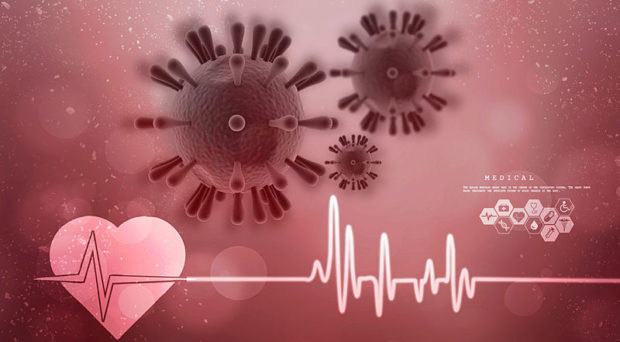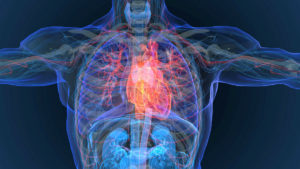
Heart complications from COVID-19 are a major cause of death, but the underlying mechanism for this is currently unclear. Severe bacterial infections can affect the entire human body, including the heart function, and bacteria from the mouth can cause infective endocarditis, a serious heart infection. So how does the SARS-CoV-2 virus affect the hearts of patients with COVID-19?
The COVID-HEART study aims to use cardiac MRI scans to investigate how often, and in what way, the heart becomes damaged, and how the heart recovers 6 months later. Patients will also be asked to provide an optional blood sample for genetic and immunological testing.

A better understanding of the impact of COVID-19 on heart health is particularly needed in African populations as recent reports have indicated that people of African origin are disproportionately affected and experience the most severe manifestations of infection.
High blood pressure and other risk factors such as HIV are more common in sub-Saharan Africa and this may increase overall rates of disability and death. Health systems in sub-Saharan Africa require more data to guide future treatments and avoid the short- and long-term consequences of COVID-19 on heart health.
The COSMIC-19 study will investigate structural and functional changes of the heart muscle and arteries using various imaging techniques (a combined CT coronary angiogram/fluorodeoxyglucose (FDG) PET scan and a cardiac MRI scan) to evaluate inflammation, heart muscle scarring, and underlying blockage in the arteries supplying the heart.
The COVID-19 pandemic has disrupted healthcare systems worldwide, and many patients have experienced changes in the care they receive. A recall study is contacting the participants of the OPTIMISE HFpEF study, including patients with heart failure with preserved ejection fraction (HFpEF) as well as carers and healthcare professionals, to explore the impact of these changes. This is part of an ongoing programme of research which aims to design an optimised management pathway for people with HFpEF.

In our blog for World Heart Day last year, we discussed studies of cardiopulmonary resuscitation (CPR) for patients in cardiac arrest. In out-of-hospital cardiac arrest (OHCA), patient survival depends on a series of precise and coordinated actions from the moment the patient collapses.
The COVID-19 pandemic has caused changes in patient care that particularly impact the treatment of OHCA. Emergency teams must take more precautions and there are more restrictions for recommending an initial citizen intervention.
The OHSCAR study is looking at whether these delays and reduced bystander CPR affect survival after OHCA, whether they will be maintained even when the pandemic ends, and if they will affect future CPR recommendations.
As of September 2020 there are currently no studies registered at ISRCTN with interventions specifically targeting heart complications from COVID-19, although there are many other COVID-19 clinical trials as described in our previous blog in May, with many more trials added since then.

Until an effective treatment or vaccine is developed, can people reduce their risk of heart complications from COVID-19? People with COVID-19 who are obese are more likely to become seriously ill and be admitted to intensive care, so the UK Government has recently launched a new national campaign to encourage people to eat better, drink less alcohol and get active, all in order to cut their risk of COVID-19 complications.
Similarly, the CRISO study is evaluating a preventive programme to reduce heart disease risk in the relatives of patients with premature coronary heart disease. Smoking, poor diet, and lack of exercise are linked with obesity, low blood pressure, and poor blood sugar and cholesterol control, all of which are risk factors that lead to heart disease. If these lifestyle factors are modified, this might decrease the risk of heart disease.
As well as maintaining a healthy lifestyle, the World Heart Federation also urges people not to let COVID-19 stop them attending their regular check-ups and using the emergency services if needed. They are showcasing the stories of COVID-19 frontline heroes and their patients on their Heart Heroes website.
Comments